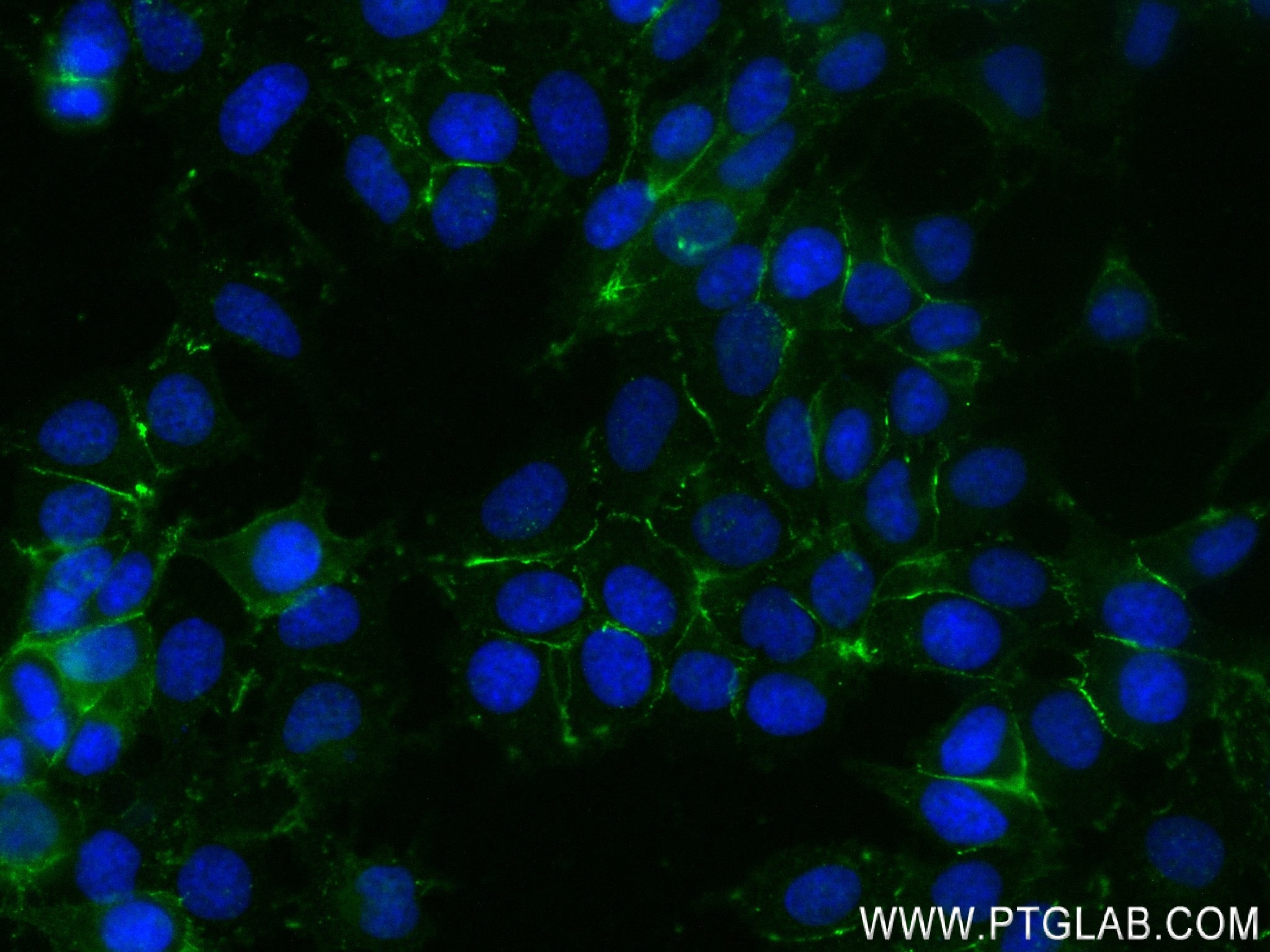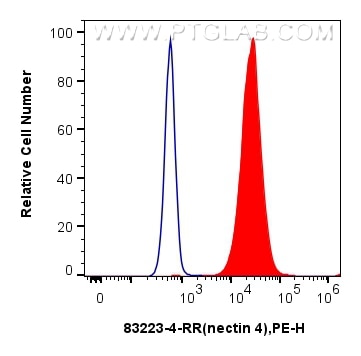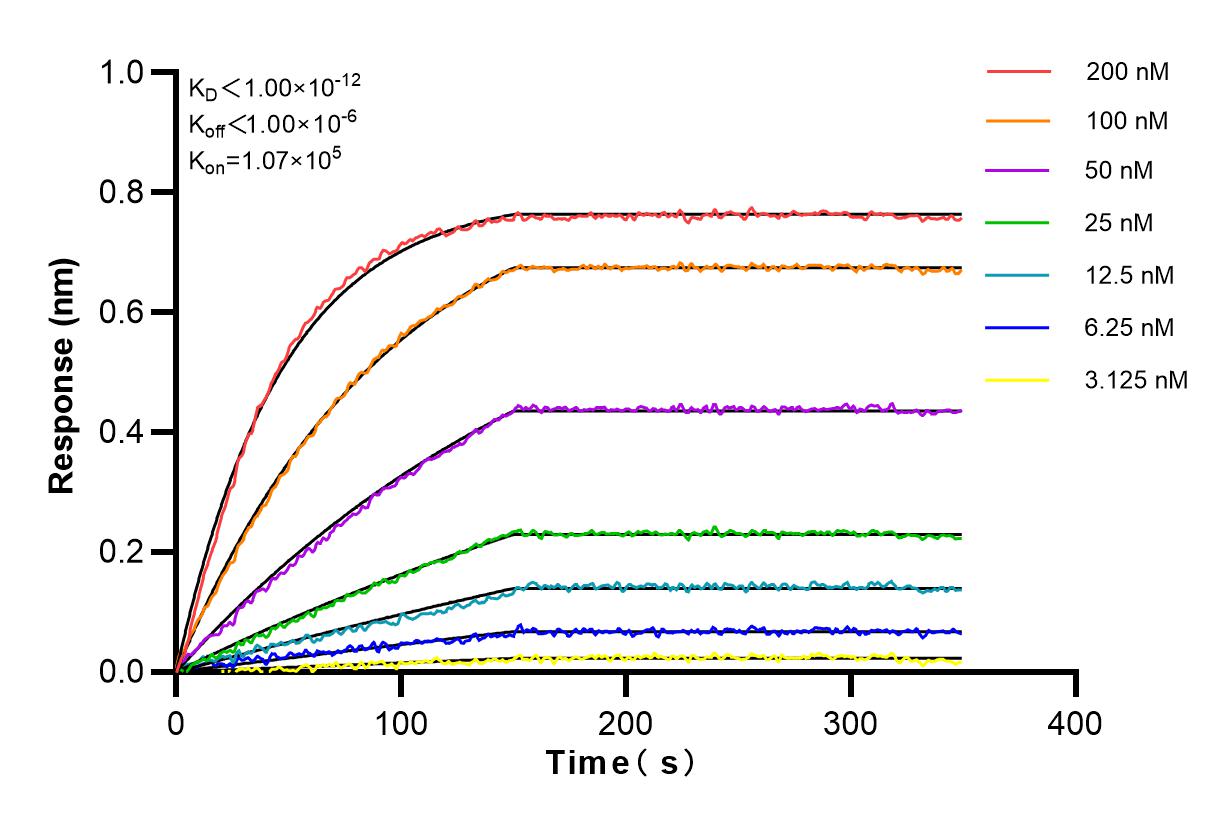Nectin-4/PVRL4 Recombinant antibody
Nectin-4/PVRL4 Recombinant Antibody for IF/ICC, FC, ELISA
Host / Isotype
Rabbit / IgG
Reactivity
human
Applications
IF/ICC, FC, ELISA
Conjugate
Unconjugated
CloneNo.
240009F2
Cat no : 83223-4-RR
Synonyms
Validation Data Gallery
Tested Applications
| Positive IF/ICC detected in | MCF-7 cells |
| Positive FC detected in | MCF-7 cells |
Recommended dilution
| Application | Dilution |
|---|---|
| Immunofluorescence (IF)/ICC | IF/ICC : 1:50-1:500 |
| Flow Cytometry (FC) | FC : 0.25 ug per 10^6 cells in a 100 µl suspension |
| It is recommended that this reagent should be titrated in each testing system to obtain optimal results. | |
| Sample-dependent, Check data in validation data gallery. | |
Product Information
83223-4-RR targets Nectin-4/PVRL4 in IF/ICC, FC, ELISA applications and shows reactivity with human samples.
| Tested Reactivity | human |
| Host / Isotype | Rabbit / IgG |
| Class | Recombinant |
| Type | Antibody |
| Affinity | KD=2.28 x 10-10M KOff=2.98 x 10-5M KOn=2.62 x 105M |
| Immunogen | Recombinant protein 相同性解析による交差性が予測される生物種 |
| Full Name | poliovirus receptor-related 4 |
| Calculated molecular weight | 510 aa, 55 kDa |
| GenBank accession number | BC010423 |
| Gene symbol | Nectin-4 |
| Gene ID (NCBI) | 81607 |
| RRID | AB_3670907 |
| Conjugate | Unconjugated |
| Form | Liquid |
| Purification Method | Protein A purification |
| Storage Buffer | PBS with 0.02% sodium azide and 50% glycerol pH 7.3. |
| Storage Conditions | Store at -20°C. Stable for one year after shipment. Aliquoting is unnecessary for -20oC storage. |
Background Information
Nectin-4, or PVRL4, belongs to the family of cell adhesion molecules that regulate the formation of adherence functions in epithelial cells through the AF-6 afadin scaffold molecule. Nectin-4 is reported as a histological and serological marker for breast carcinoma. Nectin-4 can be detected as a soluble form of 43 kDa and a transmembrane form of 66 kDa (PMID: 15784625).
Protocols
| Product Specific Protocols | |
|---|---|
| IF protocol for Nectin-4/PVRL4 antibody 83223-4-RR | Download protocol |
| Standard Protocols | |
|---|---|
| Click here to view our Standard Protocols |




